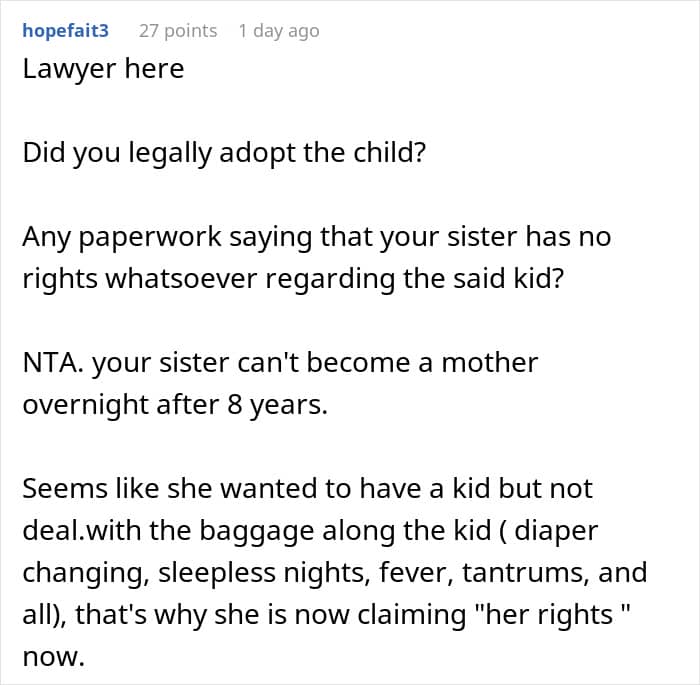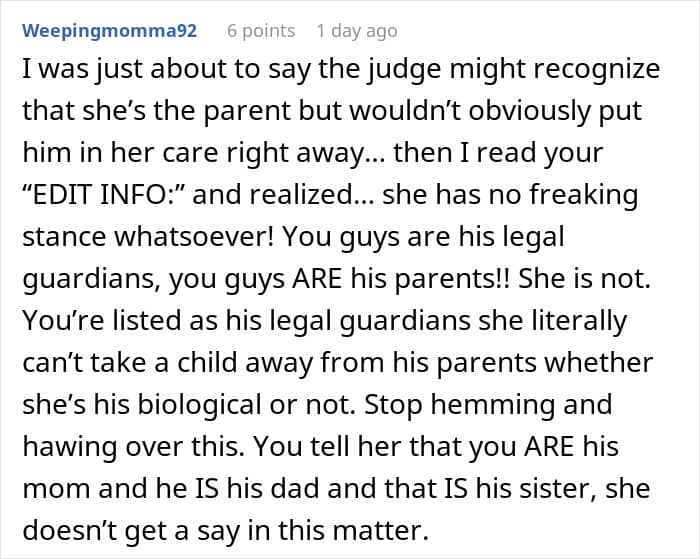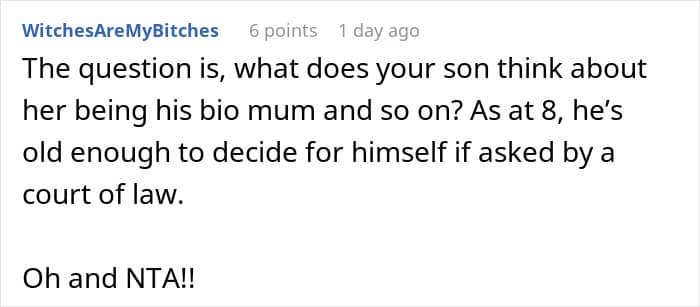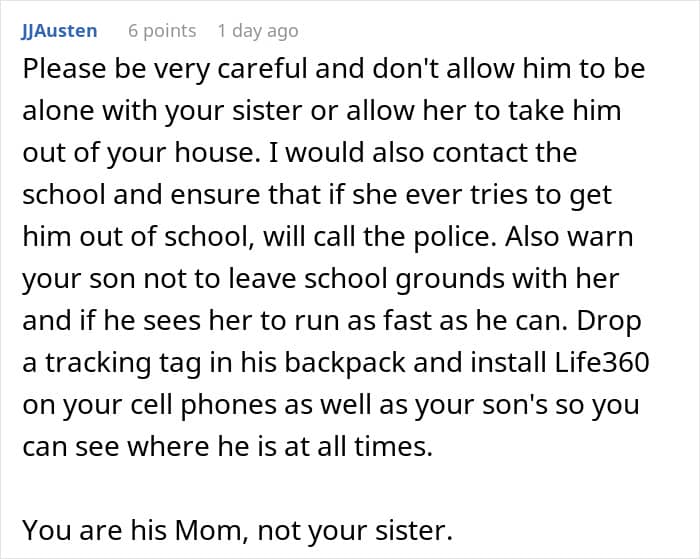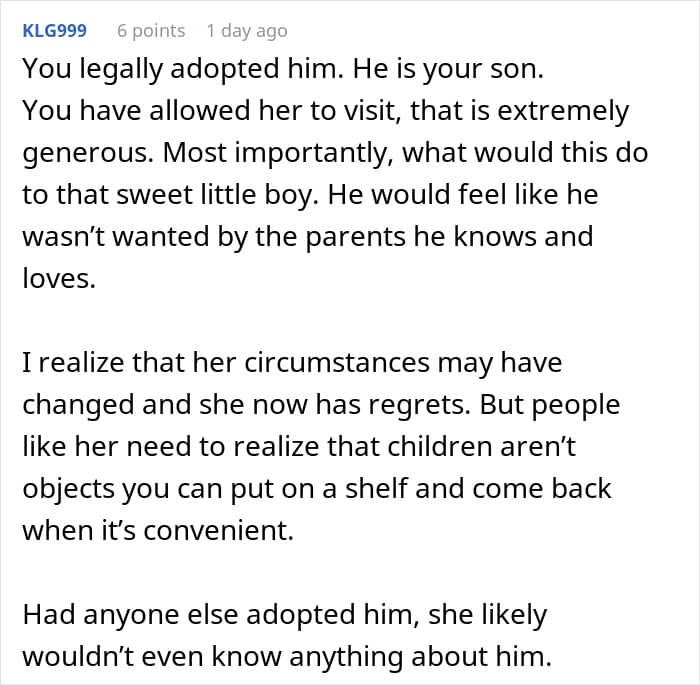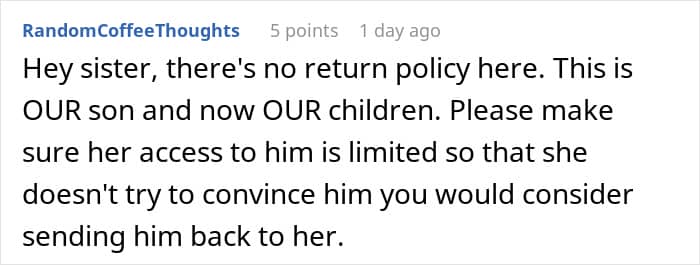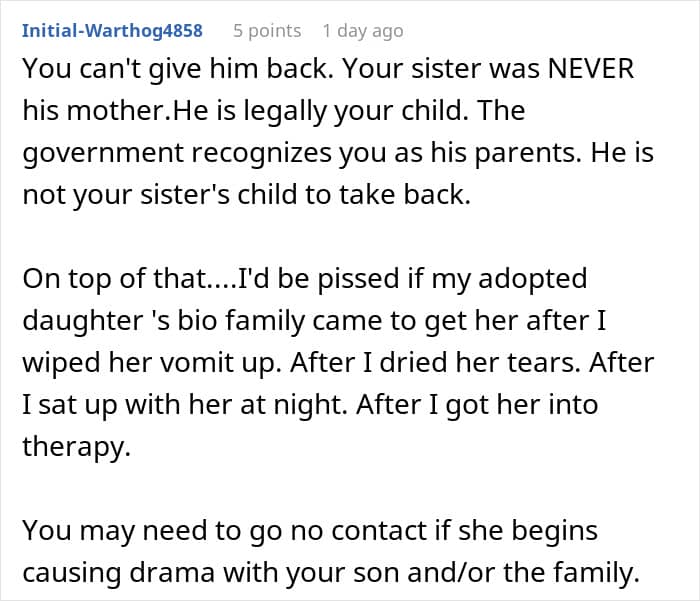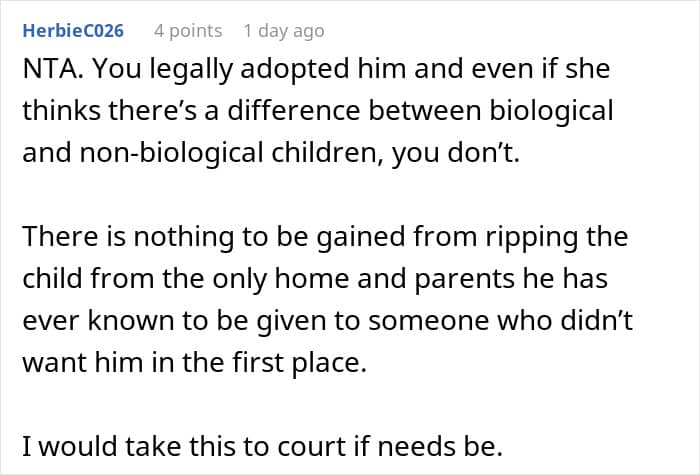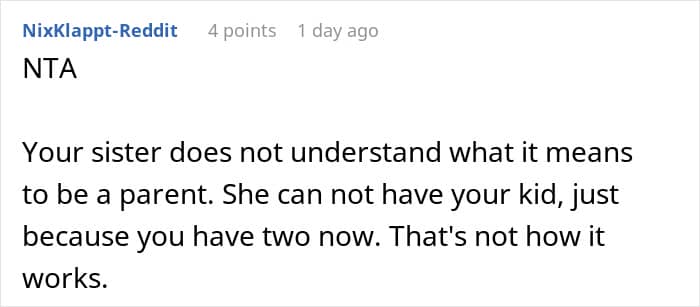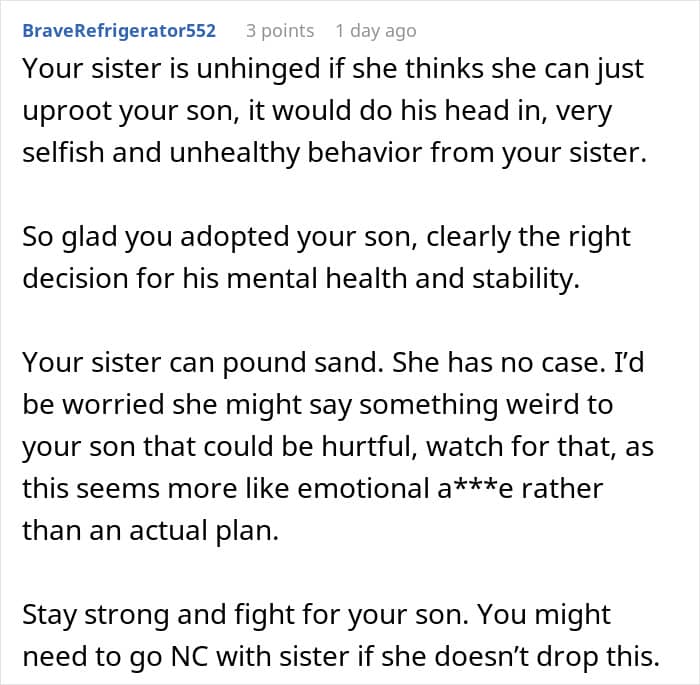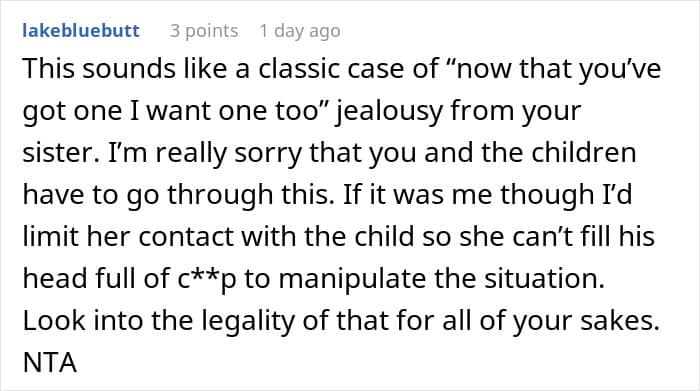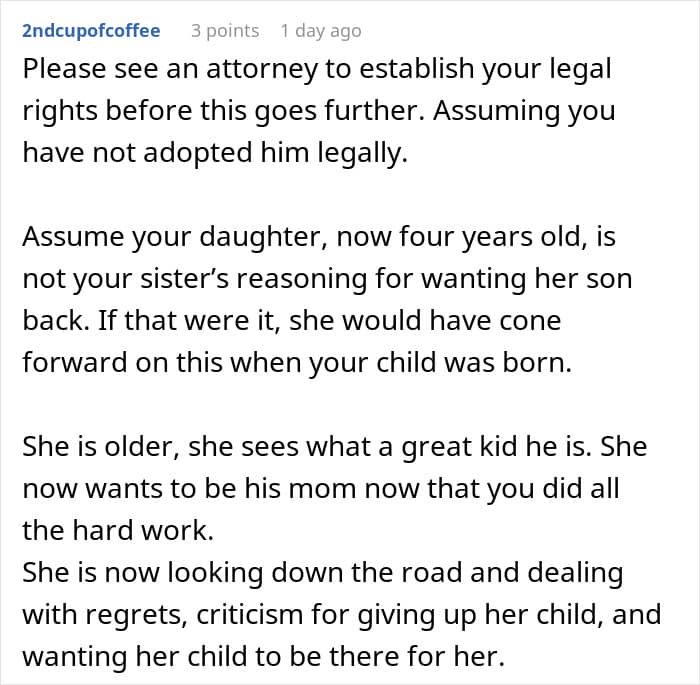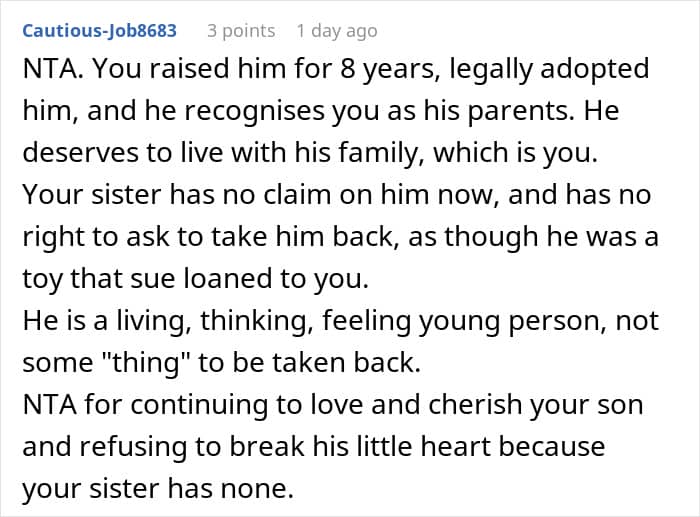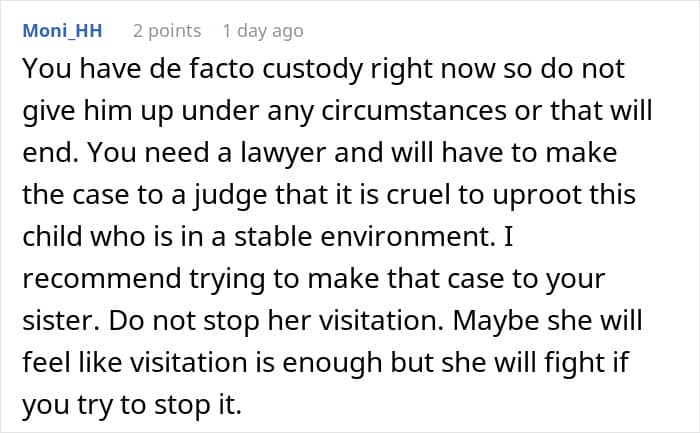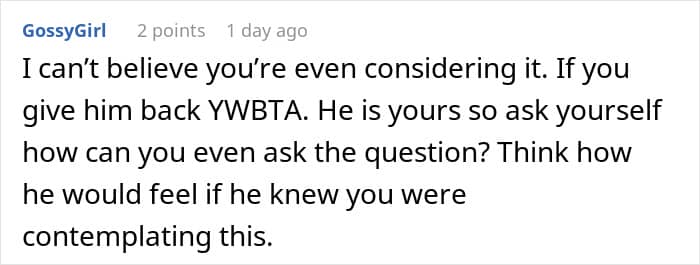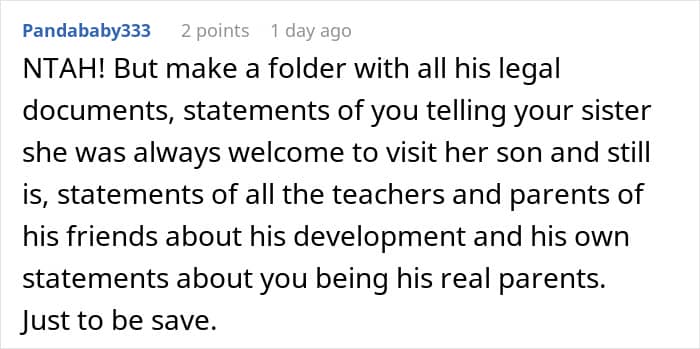Every mother wants what’s best for their child, and some mothersknow they won’t be able to give their kids the best life they could have. Some choose to give them away for adoption, but 33% chooseto let other family members raise them.
So did this mother, who gave her son away to her sister and husband. Since they’ve always wanted children of their own but were never successful, they welcomed the opportunity. However, after the couple finally was blessed with a daughter, the sister started demanding that they give her biological son back to her. After they refused, a feud broke out between the sisters.
RELATED:A woman was raising her sister’s biological child for eight years
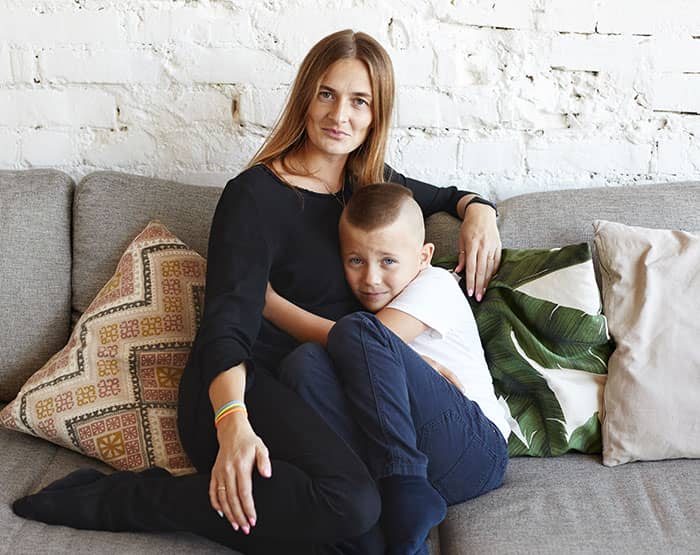
After she had her own daughter, the sister demanded that she give the son back, since she finally got a kid of her own
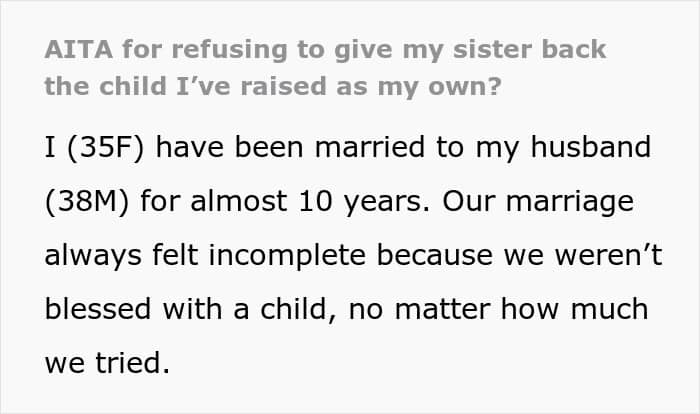
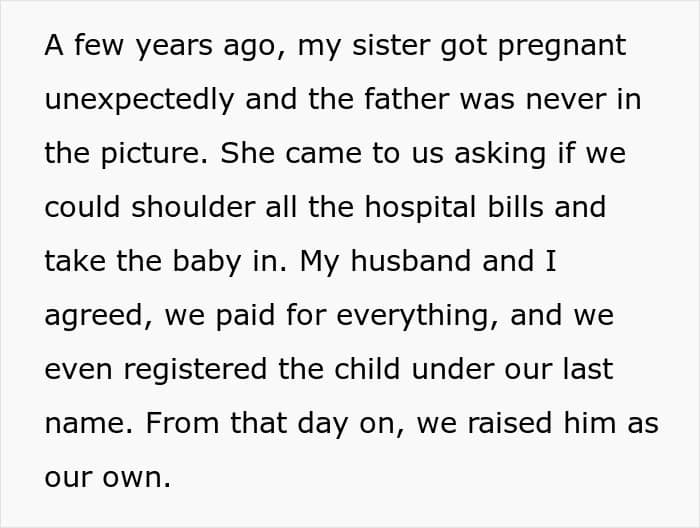
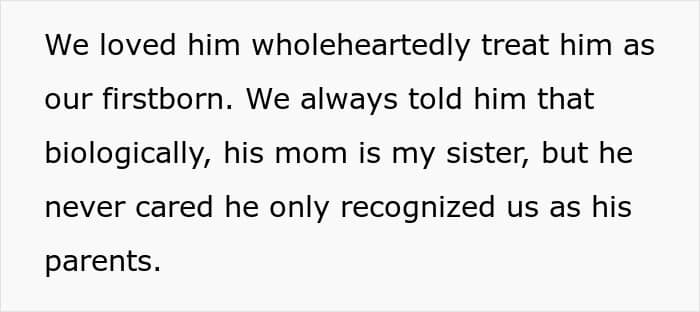
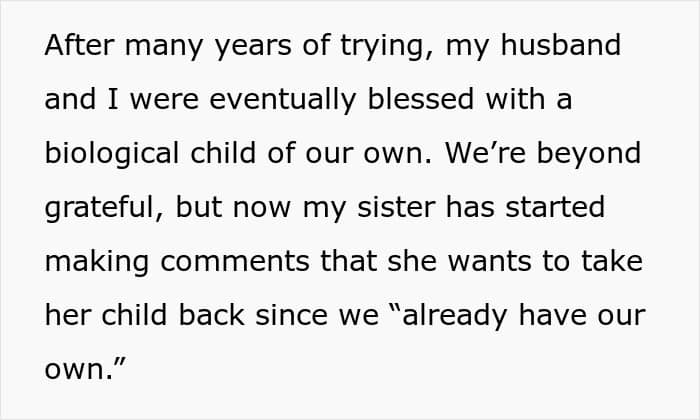
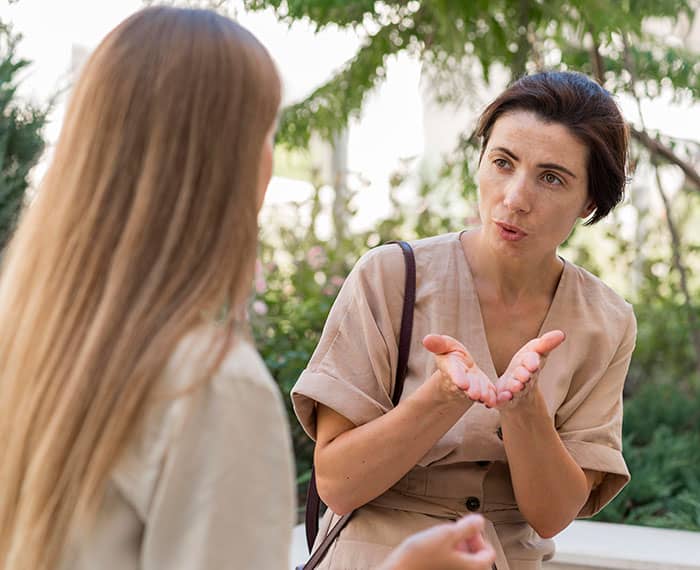
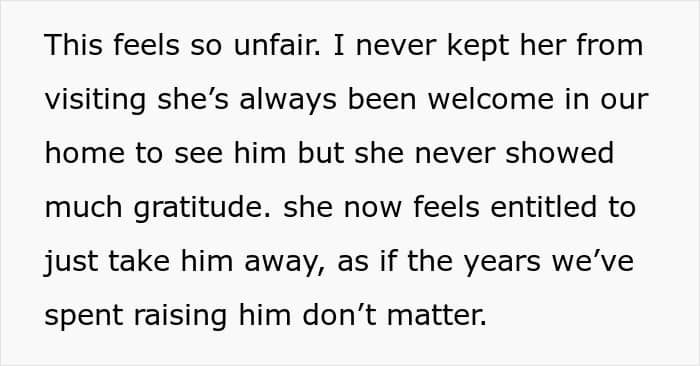
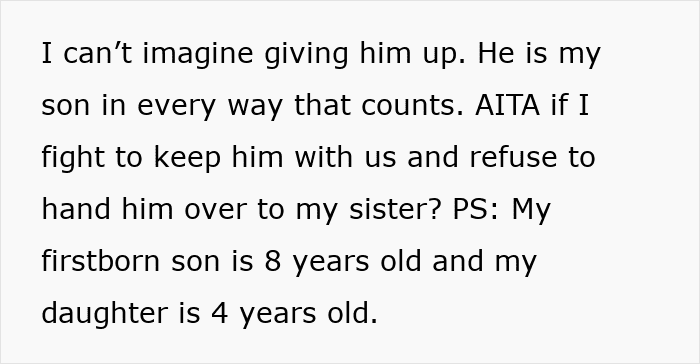
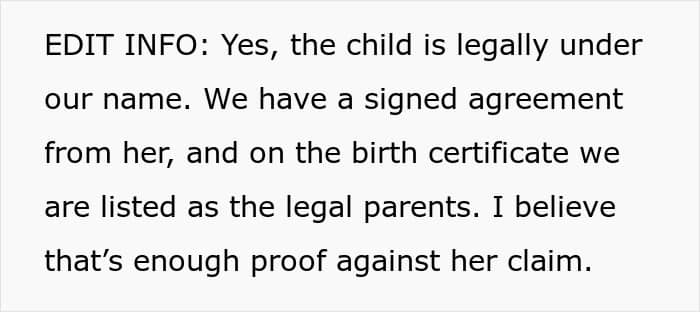
Giving your baby to family members for adoption has its advantages
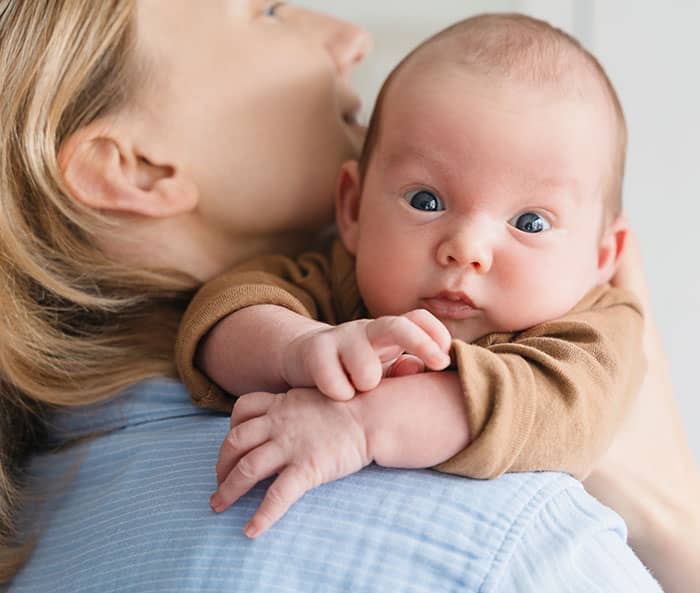
In an ideal world, every child would have at least one loving parent. However, in 2025, more than 77,000 children and teens are in the foster care system waiting for a permanent, loving family home. Sometimes, that becomes the literal family home: grandparents, aunts, uncles, and siblings adopting children is not that uncommon. This practice is referred to as ‘kinship adoption.’
Kinship adoption comes with pros and cons. Here are the advantages that most experts see:
The biological mother knows the adoptive parents. When a mother places her child in the foster care system, she’ll have no say in who gets to foster or adopt them. The new parents will be strangers to both the child and the mother. In a kinship adoption, the mother already has a personal relationship with the adoptive parents and can trust them more easily.Feelings of grief and loss are easier to deal with. Experts notethat mothers usually feel more at peace knowing that their child will be taken care of by a family member.Easier contact between the mother and child. If the biological parent’s living situation doesn’t change much, they can visit and maintain regular contact with the child.
But not everyone chooses to formalize raising a family member’s child. Some aunts, uncles, siblings, or grandparents might take care of a family member’s child without adopting him or her. In 2021, for example, 2.1 million grandparents were primary caregivers for their grandchildren.
But many lines also blur, confusing the adoptive parents, the child, and the biological parent
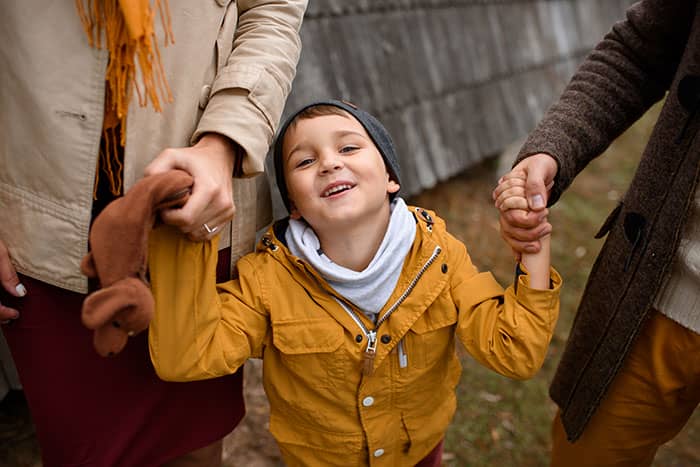
Yet other biological parents give their children away to other family members for adoption. With adoption, the siblings aren’t just primary caregivers for the child. “When you place a child for adoption, your parental rights are terminated,” adoption attorney Meghan Cohen explains.
That might present several complications for the biological parent, the child, and the family members who adopt them.
Different parenting styles. The biological parent, still present in the child’s life, might feel that they have a say in how the child should be parented. Because the adoptive parents are family members, they might feel more comfortable criticizing their parenting decisions and feel entitled to make them instead.Boundaries. This entitlement might lead to conflict pretty soon. So, experts advise clearly defining the biological parent’s role in the child’s life during the adoption process. “Your relatives may want more separation from you, but you might want more contact,” the experts at Lifetime Adoption point out.It’s confusing for the child. “The child may experience conflicting feelings about their biological parents and adoptive parents,” according to the adoption agency Adoption Arc. In this story, although the boy knows who his biological mother is, he still considers his adoptive parents as his real parents.
This story is an example of how difficult it is to navigate a kinship adoption and what might happen when families perhaps don’t take the necessary precautions to set boundaries, establish clear roles, and communicate about expectations from the get-go.
But the process wasn’t as easy, since he was legally the sister’s son now
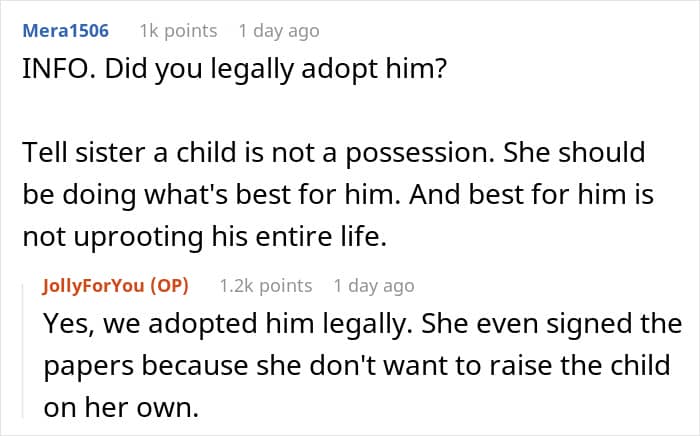
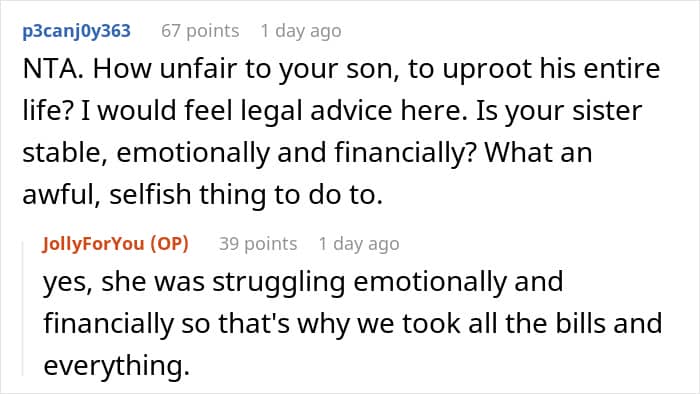
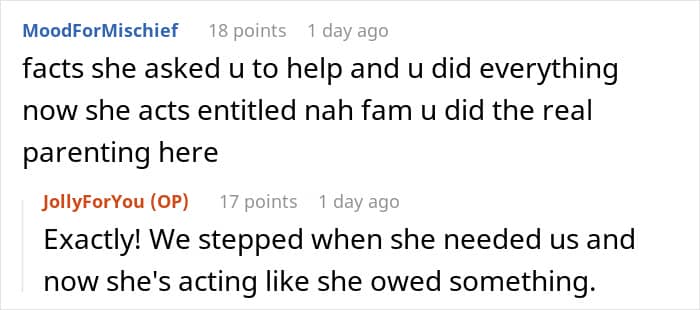
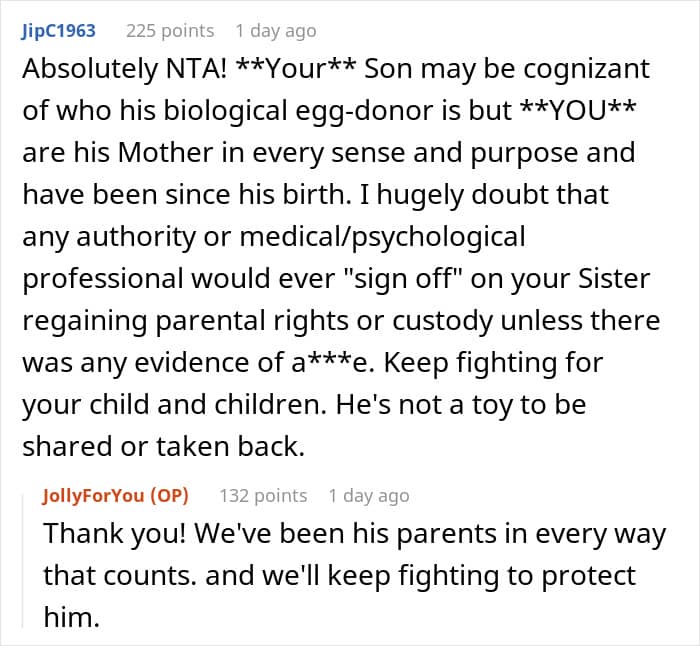
Commenters pointed out that the mother was treating the son like an object: “There’s no return policy”
